When there’s lack of communication…
As cliché as it may sound, if there’s one thing I take away from the film Batman vs Superman: The Dawn of Justice it’s that communication certainly matters. The biggest misunderstandings are frequently a result of our keenness to rumor and proclivity to hang on to first impressions.
In a perfect world, heroes wouldn’t take up arms against each other. But the world is not perfect and we are prone to error. And Batman, in his prejudice against Superman, failed to listen.
When there’s miscommunication…
In July 1945, allied leaders meeting in Potsdam demanded the unconditional surrender of the Japanese armed forces and the only alternative offered to Japan was «prompt and utter destruction». Japanese Minister Kantaro Suzuki was asked about his reaction to the Potsdam Declaration and Suzuki apparently replied «mosukatsu». Depending on context, mosukatsu has different meanings. Unfortunately the word was translated as meaning «not worthy of comment» and the Allies took it as grave insult. We all know how this ended – Fat Man and Little Boy were dropped as a consequence in Nagasaki and Hiroshima.
Prime Minister Suzuki might have actually meant «no comment».

The A-bomb dome standing by the Motoyasu River in modern Hiroshima for 70 years now.
Photo: S. Hänggi
______________________________
Even if we think we are already communicating, we could still be misunderstood. What more if we’re not?
I am not a communications expert but I care deeply about TWO things:
First, communication is a two-way process – we talk and we listen. Otherwise it’s a monologue. The amount of information being delivered is not necessarily directly proportional to the number of words per minute.
Second, I think it’s fair to give someone the benefit of doubt on top of all that’s being said. We love to pass judgements quickly based on hearsays and first impressions.
Celeste Headlee, a daily news/talk show host on Georgia Public Broadcasting, mentioned in her 2015 TED talk that an average person can speak about 225 words per minute but can listen at up to 500 words per minute. This means that our mind can fill in those other 275 words! And if we are distracted by too much non-sensical information, we are likely to arrive at false conclusion.
When we give someone the benefit of doubt – that’s when we let our brains do the talking.
Main photo: thebluediamondgallery.com







I am currently in a training program where we practice active listening each day, and I’m so grateful for the experience. It’s so different than the normal everyday communication we have grown accustom to. And I agree- innocent until proven guilty- giving someone the benefit of the doubt can lead to a totally different outcome than being judgmental before someone has even completed what they mean to say. Thanks for your thoughts Steph!
pin-up oyunu: pin up giris – pin up apk yukle
https://northern-doctors.org/# buying prescription drugs in mexico
http://northern-doctors.org/# mexican pharmacy
mexico drug stores pharmacies: northern doctors – mexican mail order pharmacies
http://northern-doctors.org/# best online pharmacies in mexico
best online pharmacies in mexico: northern doctors – mexican pharmacy
buying from online mexican pharmacy: п»їbest mexican online pharmacies – medication from mexico pharmacy
purple pharmacy mexico price list: mexican northern doctors – purple pharmacy mexico price list
mexico drug stores pharmacies: mexican pharmacy northern doctors – mexican pharmaceuticals online
https://northern-doctors.org/# п»їbest mexican online pharmacies
https://northern-doctors.org/# buying prescription drugs in mexico
mexican online pharmacies prescription drugs: mexican drugstore online – best online pharmacies in mexico
pharmacies in mexico that ship to usa: mexican pharmacy northern doctors – medicine in mexico pharmacies
http://northern-doctors.org/# mexican pharmaceuticals online
mexican border pharmacies shipping to usa: mexican pharmacy northern doctors – mexican online pharmacies prescription drugs
mexico drug stores pharmacies: northern doctors – п»їbest mexican online pharmacies
https://northern-doctors.org/# buying from online mexican pharmacy
mexican online pharmacies prescription drugs: northern doctors pharmacy – mexican pharmaceuticals online
http://northern-doctors.org/# buying prescription drugs in mexico
mexico pharmacies prescription drugs: mexican pharmacy – medicine in mexico pharmacies
mexican pharmaceuticals online: mexican pharmacy – mexico drug stores pharmacies
http://northern-doctors.org/# mexican online pharmacies prescription drugs
https://northern-doctors.org/# mexico drug stores pharmacies
mexican mail order pharmacies: northern doctors – mexico drug stores pharmacies
mexican border pharmacies shipping to usa: mexican pharmacy – medication from mexico pharmacy
https://northern-doctors.org/# mexico drug stores pharmacies
mexican drugstore online: northern doctors – mexican online pharmacies prescription drugs
medicine in mexico pharmacies: mexican pharmacy – medication from mexico pharmacy
buying from online mexican pharmacy: northern doctors – mexican pharmaceuticals online
mexican drugstore online: northern doctors – buying prescription drugs in mexico
medicine in mexico pharmacies: mexican pharmacy – reputable mexican pharmacies online
https://northern-doctors.org/# mexico drug stores pharmacies
п»їbest mexican online pharmacies: mexican pharmacy online – mexico drug stores pharmacies
http://northern-doctors.org/# reputable mexican pharmacies online
mexican pharmaceuticals online: northern doctors – medicine in mexico pharmacies
mexican rx online: mexican pharmacy – purple pharmacy mexico price list
http://northern-doctors.org/# purple pharmacy mexico price list
http://northern-doctors.org/# reputable mexican pharmacies online
medication from mexico pharmacy: mexican pharmacy northern doctors – mexico drug stores pharmacies
medication from mexico pharmacy: northern doctors pharmacy – mexican mail order pharmacies
https://northern-doctors.org/# mexican border pharmacies shipping to usa
п»їbest mexican online pharmacies: Mexico pharmacy that ship to usa – buying prescription drugs in mexico
https://northern-doctors.org/# best online pharmacies in mexico
https://northern-doctors.org/# mexico pharmacies prescription drugs
mexican pharmacy: northern doctors – mexico pharmacies prescription drugs
mexico drug stores pharmacies: mexican mail order pharmacies – mexican mail order pharmacies
https://northern-doctors.org/# buying prescription drugs in mexico online
mexican online pharmacies prescription drugs: mexican rx online – best online pharmacies in mexico
buying from online mexican pharmacy: Mexico pharmacy that ship to usa – mexican rx online
https://northern-doctors.org/# buying prescription drugs in mexico online
best online pharmacies in mexico: mexican northern doctors – mexican pharmacy
https://northern-doctors.org/# mexico drug stores pharmacies
mexican pharmaceuticals online: mexico drug stores pharmacies – buying from online mexican pharmacy
mexican online pharmacies prescription drugs: northern doctors pharmacy – buying prescription drugs in mexico online
http://northern-doctors.org/# mexican border pharmacies shipping to usa
best online pharmacies in mexico: mexican northern doctors – mexican border pharmacies shipping to usa
https://northern-doctors.org/# mexican rx online
medicine in mexico pharmacies: northern doctors – mexican drugstore online
mexican pharmaceuticals online: mexican pharmacy online – pharmacies in mexico that ship to usa
best online pharmacies in mexico: northern doctors pharmacy – best online pharmacies in mexico
mexican border pharmacies shipping to usa: northern doctors pharmacy – buying from online mexican pharmacy
mexican drugstore online: medicine in mexico pharmacies – buying from online mexican pharmacy
purple pharmacy mexico price list [url=http://cmqpharma.com/#]buying prescription drugs in mexico online[/url] mexico pharmacies prescription drugs
https://cmqpharma.com/# mexico pharmacies prescription drugs
mexican border pharmacies shipping to usa
reputable mexican pharmacies online [url=https://cmqpharma.com/#]mexico pharmacy[/url] best online pharmacies in mexico
mexican mail order pharmacies [url=https://cmqpharma.online/#]mexico pharmacy[/url] mexican border pharmacies shipping to usa
mexico drug stores pharmacies [url=https://cmqpharma.com/#]mexican pharmacy online[/url] mexican mail order pharmacies
mexico drug stores pharmacies [url=https://cmqpharma.com/#]mexican pharmacy[/url] mexican rx online
pharmacies in mexico that ship to usa [url=https://cmqpharma.com/#]cmqpharma.com[/url] pharmacies in mexico that ship to usa
purple pharmacy mexico price list [url=https://cmqpharma.online/#]cmq mexican pharmacy online[/url] mexico drug stores pharmacies
mexican mail order pharmacies [url=https://cmqpharma.com/#]mexican rx online[/url] buying prescription drugs in mexico online